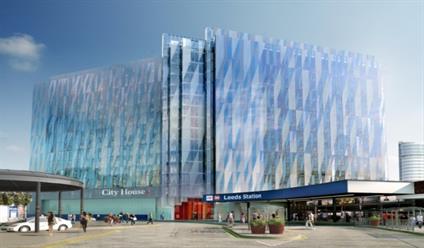In a move that will be welcomed by developers in the north, Leeds City Council has announced that it has slashed a proposed tax on building new office blocks in the centre of the city.
As the Yorkshire Evening Post reports, the initial plans were to charge a rate of £90 per every square metre of space, but councillors revealed on Tuesday (January 29th) that this has now been cut to £40.
The original proposals would have added an estimated £1 million to the cost of constructing a standard office block in the city centre, sparking fears that such a tax would see investors look elsewhere for cheaper opportunities which could subsequently damage the Leeds economy and inhibit job growth.
It was these warnings that prompted the council to reassess its position as it looked to address the concerns of businesses and ensure that investment in the city does not falter in the future.
However, while councillors will now propose a rate of £40 per square metre, it was hinted that this would still have the potential to increase in the coming years depending on developments.
"As the years go by we will be able to review this charging scheme," said councillor Neil Taggart, chairman of Leeds City Council's development plan panel.
"It is important we have development and jobs and therefore to me that is more important than charging £90 which is what we were considering."
The idea behind the tax is to raise money to help the council pay for roads, schools and various other public services, with other local authorities expected to implement a similar levy.
But given the importance of commercial property developments and office space to stimulating business growth and creating jobs, making the cost of such projects too extensive could threaten future initiatives.
The new £40 proposal is set to be considered by the council’s executive board of senior councillors, after which the public will have an opportunity to have their opinions heard.

